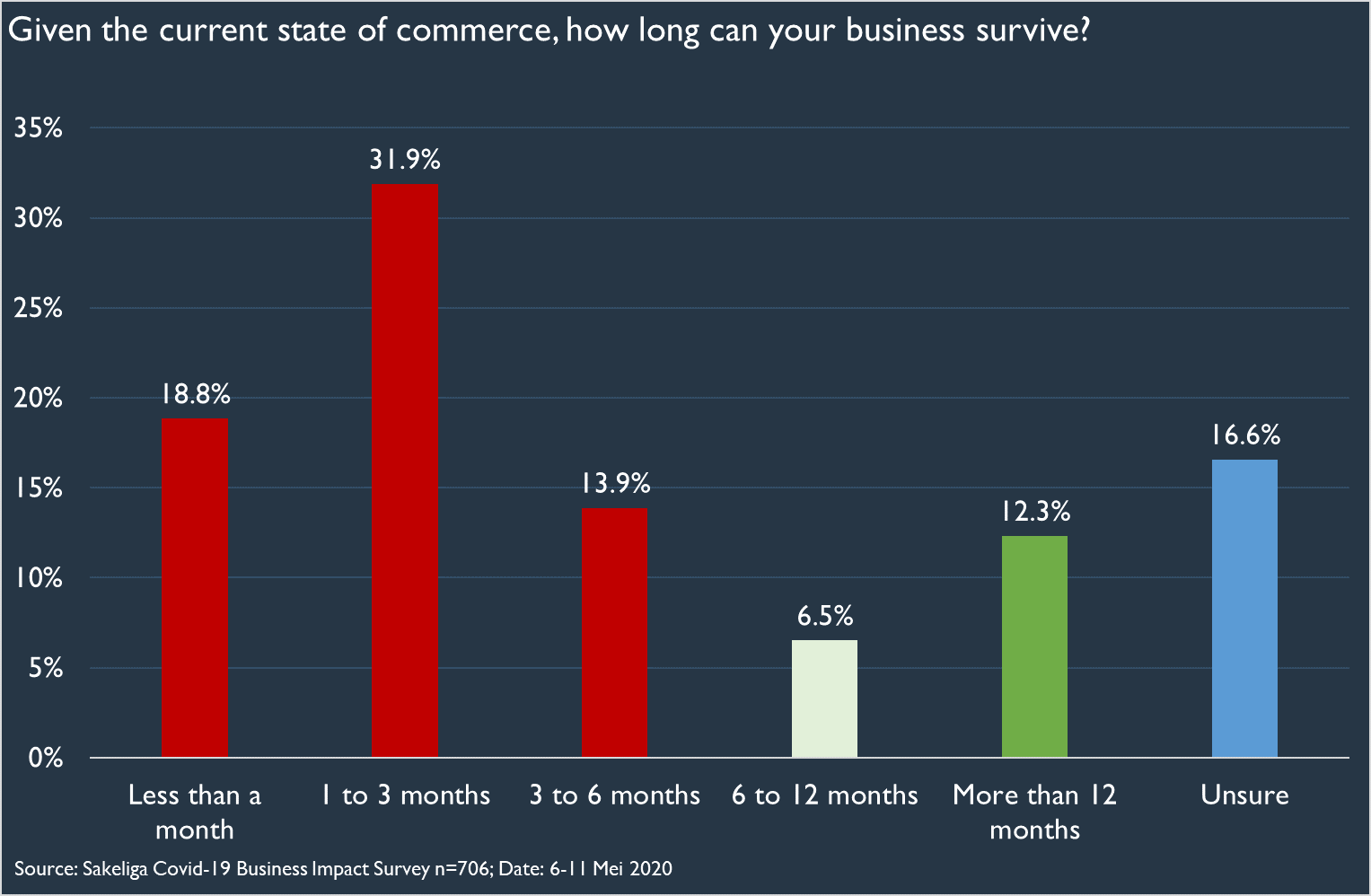The sound of businesses shutting their doors and workers joining the ranks of the unemployed are fast becoming the hallmarks of this lockdown. It is an economic, humanitarian, and social disaster in the making.
19% of businesses recently polled by Sakeliga expect to go bankrupt within the next month, and 32% within the next three months. Yet tonight President Cyril Ramaphosa committed his government to extending lockdown and indefinitely maintaining the State of Disaster.
Once again no independently verifiable criteria for when and how lockdown should be lifted were provided to businesses and the public.

Lockdown extended
Key among Mr Ramaphosa’s announcements tonight was the extension of level 4 lockdown until at least the end of May. He also announced that some parts of the country, presumably parts of the Western Cape and Gauteng, will be under lockdown level 4 even after that.
Mr Ramaphosa’s statements also imply that the State of Disaster will be renewed before it lapses around June 15, 90 days after it was initially declared. At this stage, given the government’s failure to provide its official models, yardsticks and estimated trade-offs underlying the lockdown strategy, South Africa therefore faces an indefinite lockdown.
One could accept that Mr Ramaphosa wants to speak reassuringly but given the on-going economic and social devastation of the regulations, we need to sharply look beyond that, at what he in actual effect committed his government to. Besides the above, Mr Ramaphosa’s commitments expressly and by implication also include:
- Moving some parts of the country to level 3 only in June, without any indication of what the level 3 regulations would entail
- Continued tweaking of the current level 4 regulations instead of abandoning the Kafkaesque micro-management approach itself
- More red tape, uncertainty, and public criminal liability, by expanding the regulations vastly beyond the current 91 promulgated documents, running at more than a thousand pages already
The end of May is too late. Lockdown should be lifted now and the micro-management approach completely abandoned. The only possibly workable approach would entail to stop defining what people are allowed to do, and rather craft strictly limited regulations defining unacceptable activities. Societies cannot function when everything is deemed illegal until proven legal, which is the experiment government is currently subjecting the public to.
Sakeliga’s commitments
We have heard tonight what government is committed to, but this is what Sakeliga commits to: in the short run, we will put all our resources behind lifting and mitigating lockdown, to protect health and social and material well-being. In the long run we will work for a world in which businesses and communities are strong, independent, and hedged against political risk, able to provide for their health and livelihoods with and without government support.
One key part of our short-run strategy of countering unlawful lockdown regulations is an imminent court case against government’s unlawful and harmful permit system for businesses. We are currently sourcing affidavits from members and the public and shall make further announcements thereafter.
Sakeliga’s poll
Sakeliga commenced regular polling to evaluate the impact of the Covid-19 and the state’s response on its members and broader business network. In the most recent poll, 65% of the more than 700 respondents indicated that their business would be unable to survive the current locked-down state of commerce over the short-term. Concerningly, more than 50% of the respondents did not foresee the survival of their business for longer than three months.
